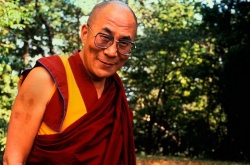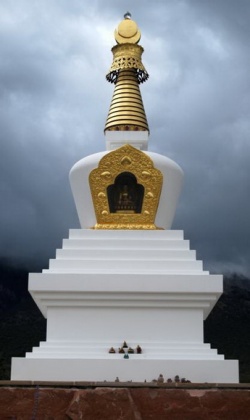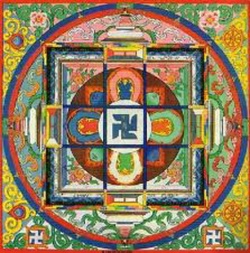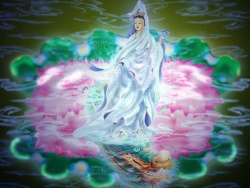Past and future lives
In order to accept reincarnation or the reality of Tulkus, we need to accept the existence of past and future lives. Sentient beings come to this present life from their previous lives and take rebirth again after death.
This kind of continuous rebirth is accepted by all the ancient Indian spiritual traditions and schools of philosophy, except the Charvakas, who were a materialist movement.
Some modern thinkers deny past and future lives on the premise that we cannot see them. Others do not draw such clear cut conclusions on this basis.
Although many religious traditions accept rebirth, they differ in their views of what it is that is reborn, how it is reborn, and how it passes through the transitional period between two lives. Some religious traditions accept the prospect of future life, but reject the idea of past lives.
Generally, Buddhists believe that there is no beginning to birth and that once we achieve liberation from the cycle of existence by overcoming our karma and destructive emotions, we will not be reborn under the sway of these conditions.
Therefore, Buddhists believe that there is an end to being reborn as a result of karma and destructive emotions, but most Buddhist philosophical schools do not accept that the mind-stream comes to an end.
To reject past and future rebirth would contradict the Buddhist concept of the ground, path and result, which must be explained on the basis of the disciplined or undisciplined mind.
If we accept this argument, logically, we would also have to accept that the world and its inhabitants come about without causes and conditions.
Therefore, as long as you are a Buddhist, it is necessary to accept past and future rebirth.
For those who remember their past lives, rebirth is a clear experience.
However, most ordinary beings forget their past lives as they go through the process of death, intermediate state and rebirth.
As past and future rebirths are slightly obscure to them, we need to use evidence-based logic to prove past and future rebirths to them.
There are many different logical arguments given in the words of the Buddha and subsequent commentaries to prove the existence of past and future lives.
In brief, they come down to four points:
the logic that things are preceded by things of a similar type, the logic that things are preceded by a substantial cause, the logic that the mind has gained familiarity with things in the past, and the logic of having gained experience of things in the past.
Ultimately all these arguments are based on the idea that the nature of the mind, its clarity and awareness, must have clarity and awareness as its substantial cause.
It cannot have any other entity such as an inanimate object as its substantial cause. This is self-evident.
Through logical analysis we infer that a new stream of clarity and awareness cannot come about without causes or from unrelated causes.
While we observe that mind cannot be produced in a laboratory, we also infer that nothing can eliminate the continuity of subtle clarity and awareness.
As far as I know, no modern psychologist, physicist, or neuroscientist has been able to observe or predict the production of mind either from matter or without cause.
There are people who can remember their immediate past life or even many past lives, as well as being able to recognise places and relatives from those lives.
This is not just something that happened in the past.
Even today there are many people in the East and West, who can recall incidents and experiences from their past lives. Denying this is not an honest and impartial way of doing research, because it runs counter to this evidence.
The Tibetan system of recognising reincarnations is an authentic mode of investigation based on people’s recollection of their past lives.



